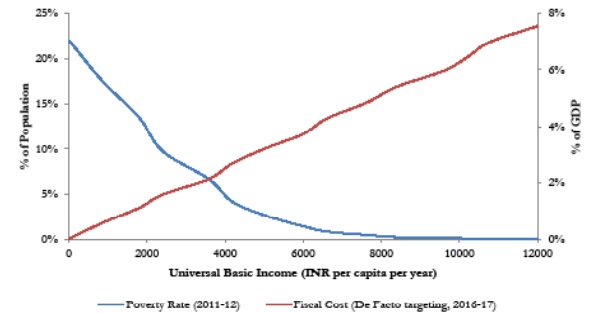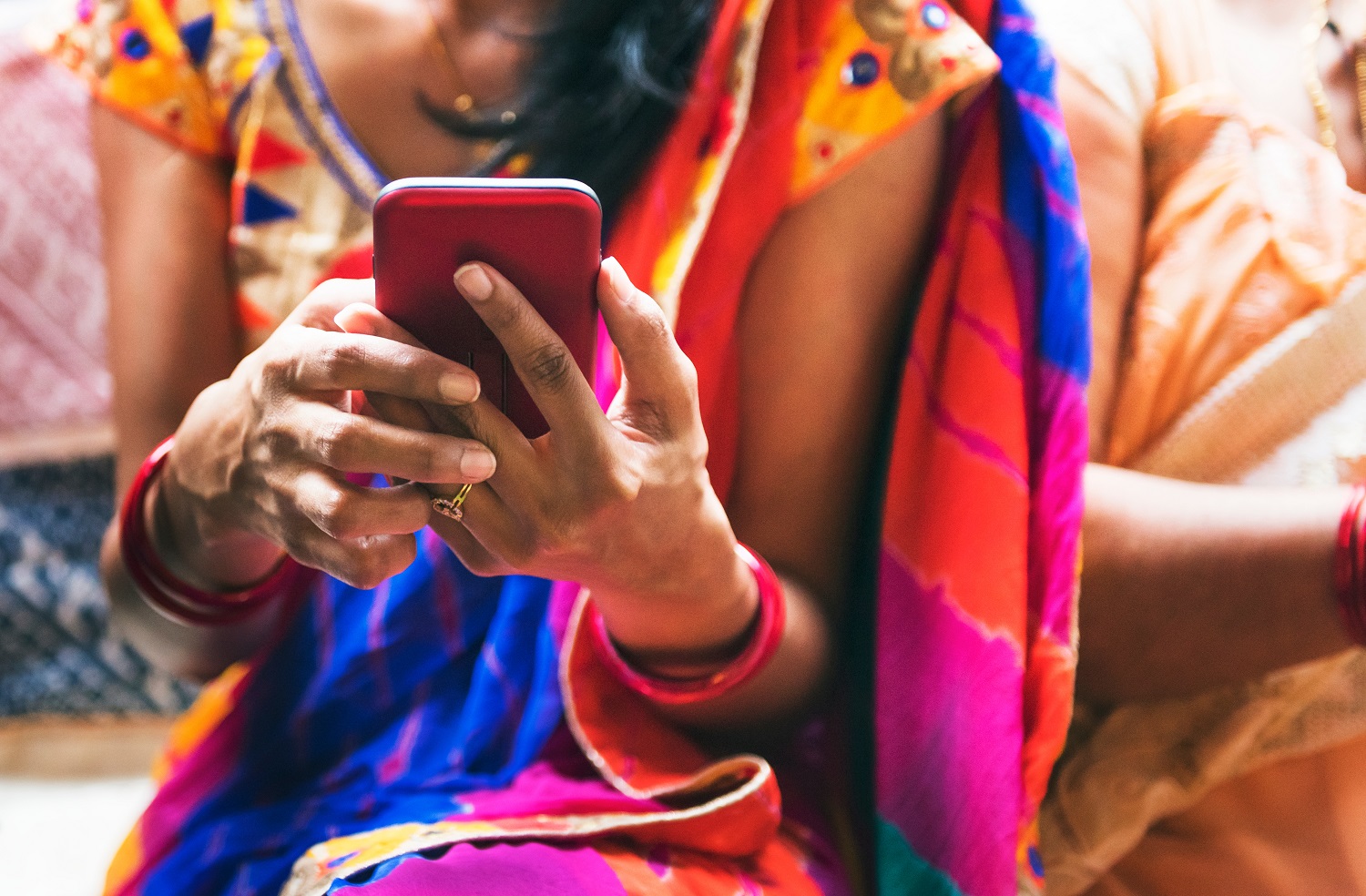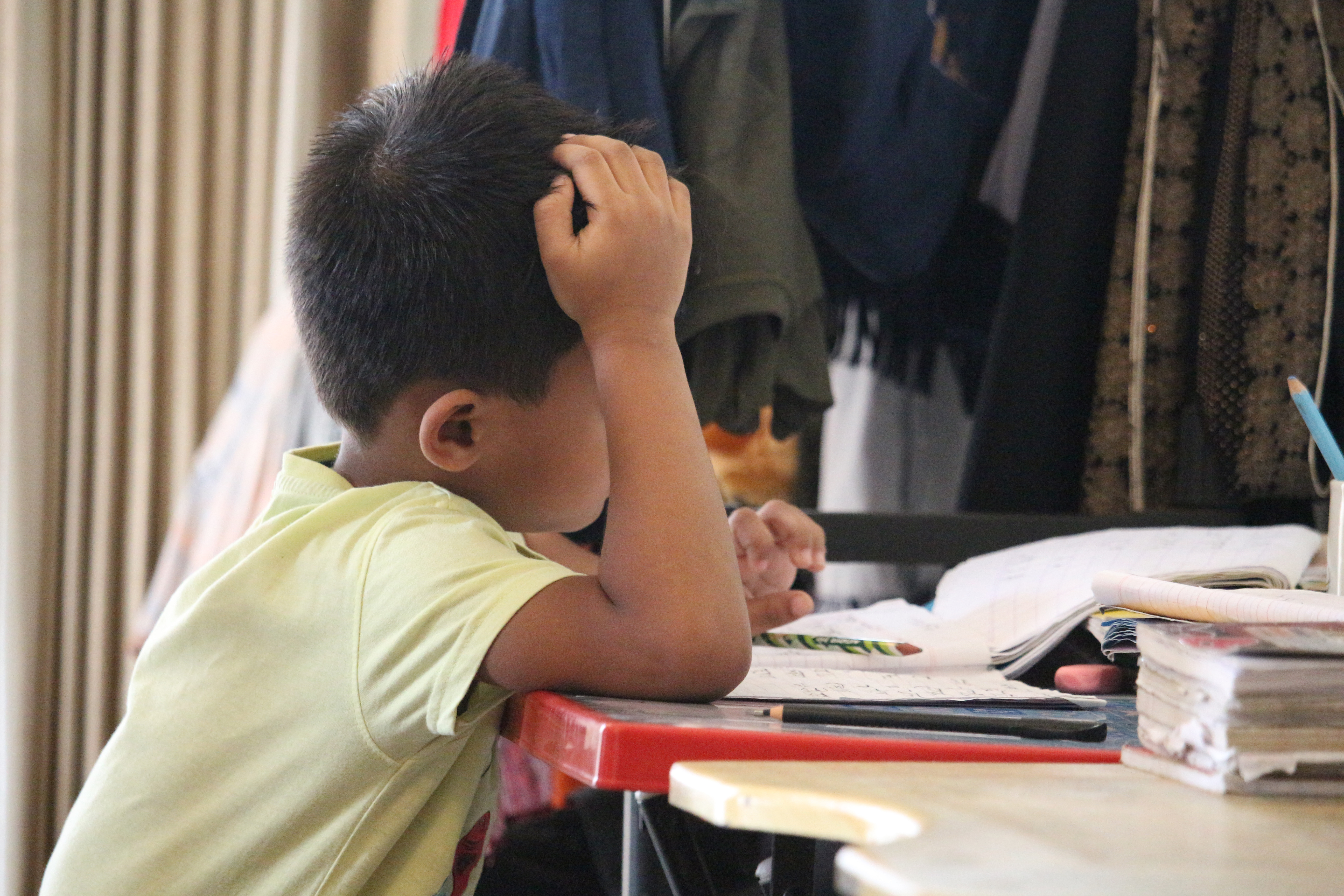India’s Ministry of Finance recently released a whopper of an annual Economic Survey. Don’t let the boring title fool you: this is a magnum opus on contemporary development. (Full disclosure: the lead author is Chief Economic Advisor Arvind Subramanian, a friend and senior fellow on leave from CGD.) The Survey contains the usual detailed analysis of the Indian economy. Yet the parts of most interest to developmentistas are likely to be the special chapters on demonetization, low-skill manufacturing, fertility puzzles, urbanization, and more.
“Universal Basic Income: A Conversation With and Within the Mahatma” (Chapter 9) is the one that really caught my attention. It’s a thoughtful, cogent, and thorough discussion of the potential to replace India’s vast complex of subsidies and targeted in-kind benefits to the poor with a guaranteed cash transfer to all citizens. The idea of UBI is simple: instead of providing subsidies for fuel, free meals, and dozens of other welfare benefits, just deposit money directly into the bank account of every citizen to use as they see fit.
India is nearly done building the plumbing to enable such a system by connecting the Aadhaar-based biometric ID system to individual bank accounts. It’s already replaced LPG gas canister subsidies with cash, a program that has 150 million beneficiaries and is the now the world’s largest cash transfer program. So could India take this example to its logical conclusion and replace all welfare benefits with UBI? (GiveDirectly is asking a similar question in a bold 10-year $30 million experiment in Kenya.)
The Survey’s assessment begins with quotes from Mahatma Gandhi suggesting both support and objection to the principles of UBI. The chapter then methodically addresses the conceptual pros (e.g., justice, equity, agency, efficiency) and potential cons (e.g., labor disincentives, moral hazard, political objections). It attempts various modeling, including a rough estimate that cutting national poverty in half via UBI would cost just 1.5 percent of GDP, less than the subsidy bill in the 2016-17 budget. For the data nerds, there are seven (!) appendices explaining all the estimates and calculations.
Implications of the UBI and its effect on poverty and vulnerability
Source: NSS 2011-21, Budget 2016-17, Survey Calculations
For followers of CGD’s Oil-to-Cash initiative, the survey also highlights the fascinating case of the state of Goa (page 297), where a 2012 judgement by the Supreme Court of India created the Goa Iron Ore Permanent Fund. A group of citizens, the Goenchi Mati Movement, are now fighting for the expansion of the fund and the distribution of cash dividends, akin to the Alaska Permanent Fund dividend, which pays out an equal share of half the five-year average earnings from the state’s sovereign wealth fund to each resident.
So, should India go for UBI or not? In the end, the Survey concludes, with its characteristic blend of charming caution and righteous audacity:
…UBI is a powerful idea whose time even if not ripe for implementation is ripe for serious discussion. One can easily imagine the Mahatma as fair mediator, deliberating and examining both sides of the argument carefully. The Mahatma as the embodiment of universal moral conscience would have seen the possibility of UBI in achieving the outcomes he so deeply cared about and fought for all his life. But the Mahatma as moralist would have had doubts because of seeing uncompensated rewards as harming responsibility and effort. As a fiscal conservative he would permit UBI only if convinced that macro-economic stability would not be jeopardized. Recognizing the difficulty of exit, the Mahatma as astute political observer would have anxieties about UBI as being just another add-on government programme. But on balance he may have given the go-ahead to the UBI.
Or so one might tentatively infer.
Read the full Survey here.
CGD blog posts reflect the views of the authors, drawing on prior research and experience in their areas of expertise.
CGD is a nonpartisan, independent organization and does not take institutional positions.






